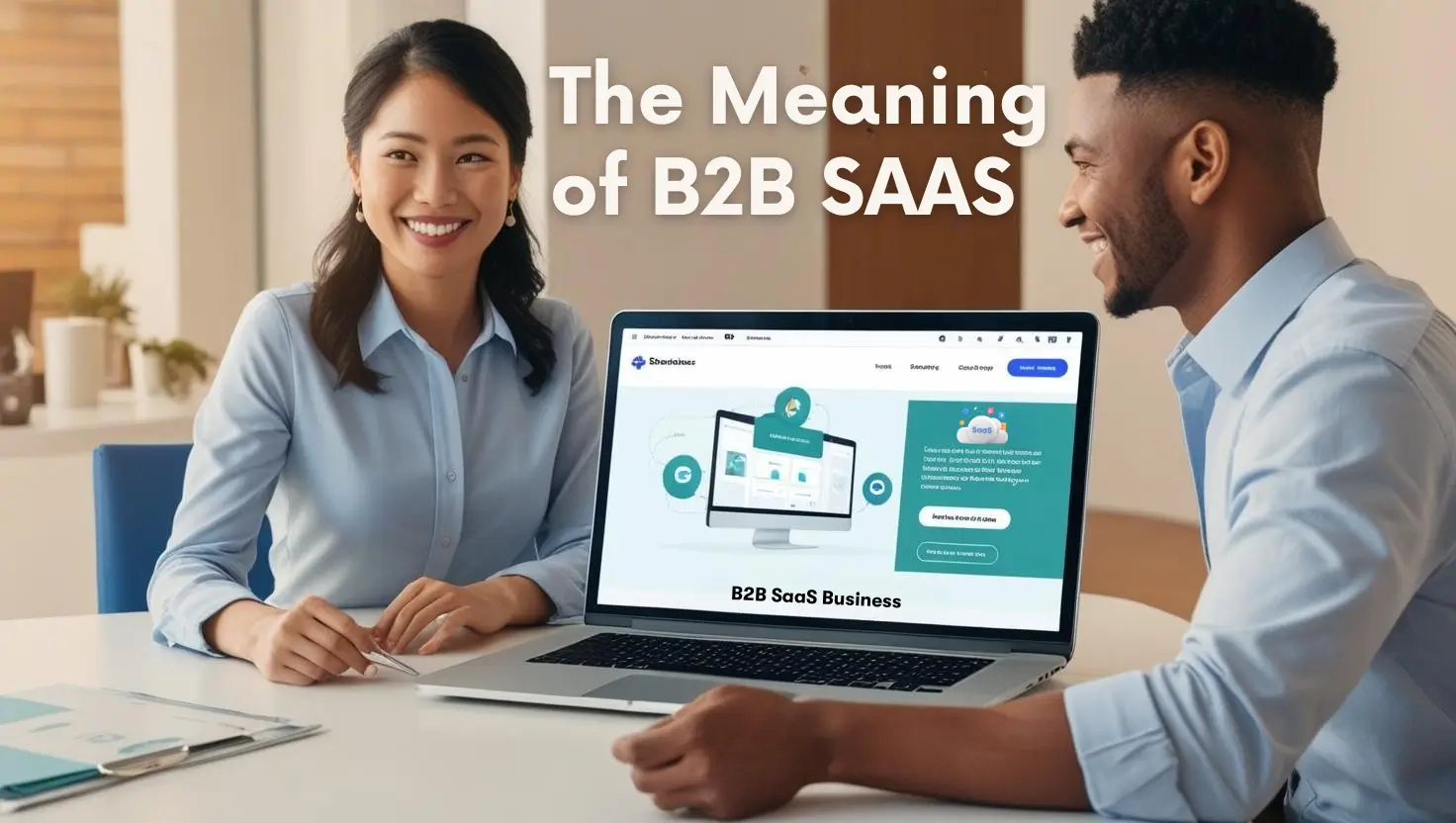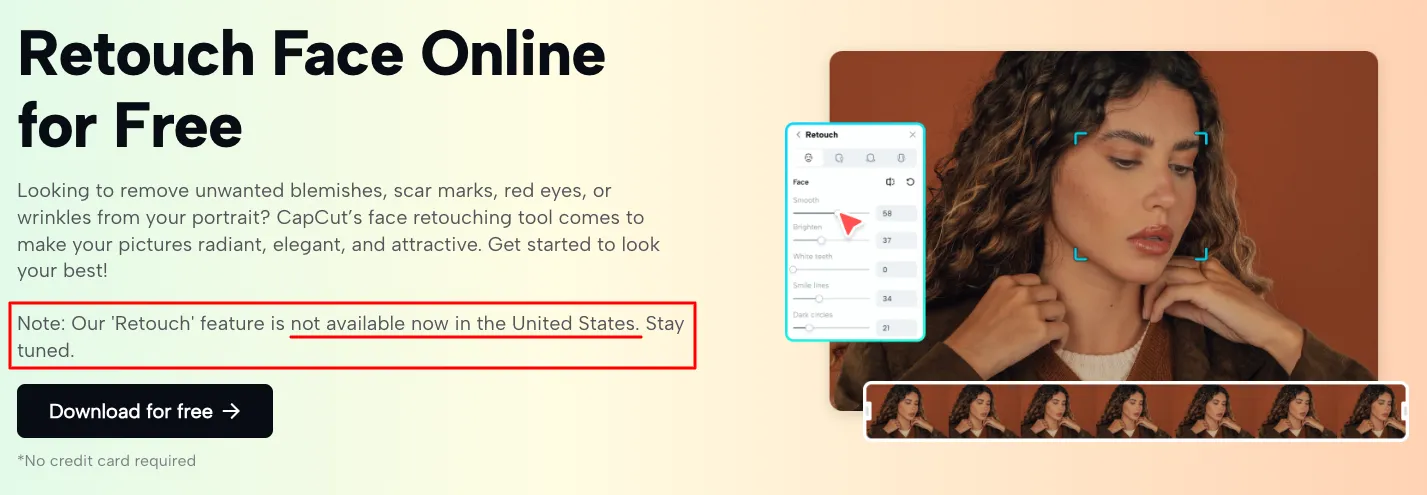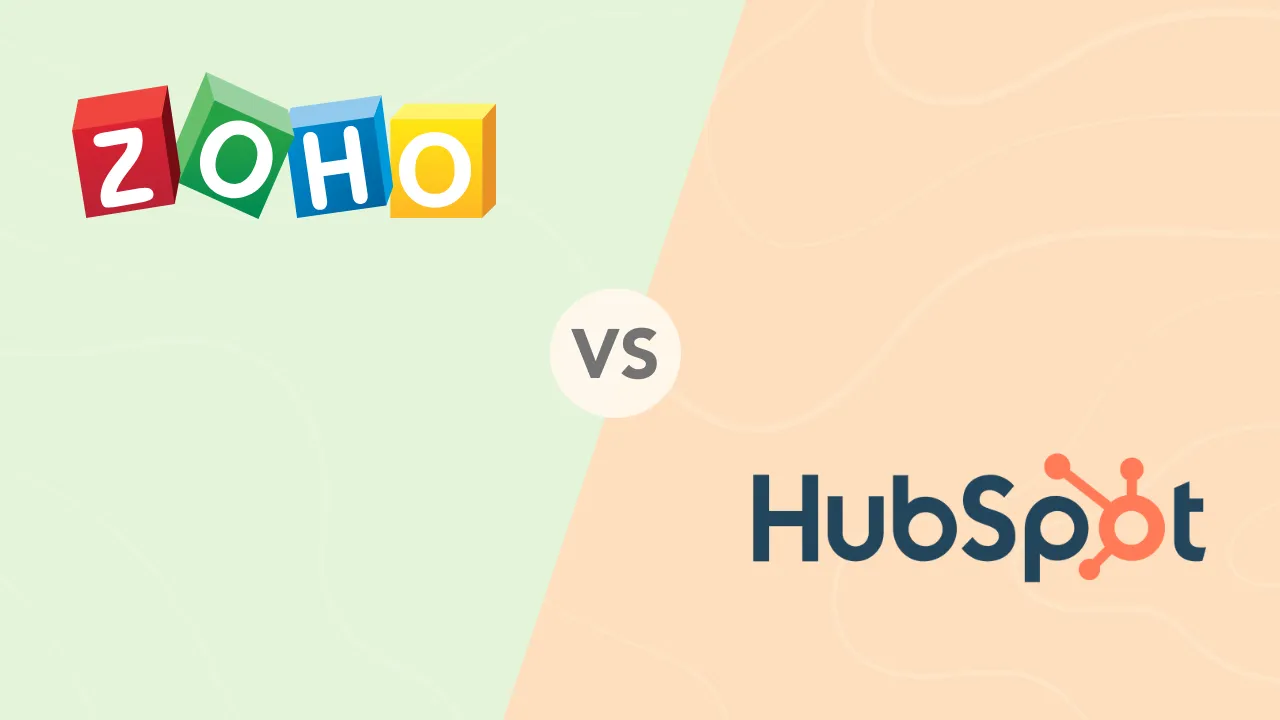SEMrush vs. Ahrefs: Which Tool Wins for SEO Accuracy, Value & Growth?
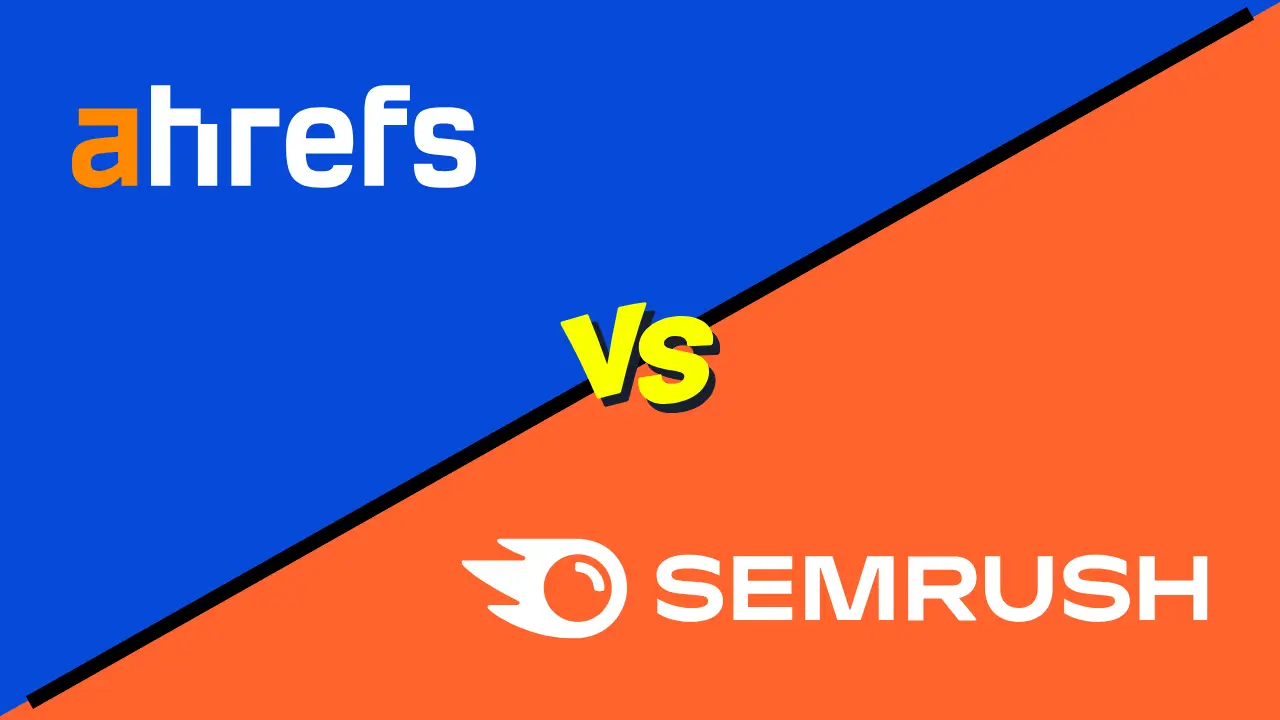
I’ve been in the SEO world for over a decade, working across startups, agencies, and in-house teams. And in that time, I’ve used just about every SEO tool out there. But there are two that I keep coming back to: Ahrefs and SEMrush.
This comparison isn’t sponsored, and it’s not a feature dump, either. It’s based on actual, day-to-day work—keyword research, link audits, traffic forecasting, and competitive analysis. My goal here is simple: help you choose the tool that matches your work style.
Quick Overview: Ahrefs vs. SEMrush
Let’s start with what each tool is really about.
| Tool | Built For | Strengths |
| Ahrefs | SEO-first, link-heavy strategy | Backlink analysis, technical SEO, fast UI |
| SEMrush | Full-funnel digital marketing | Keyword segmentation, content tools, PPC |
Both tools are solid. But they’re built for different types of workflows. If you focus heavily on SEO execution, Ahrefs is more streamlined. If you need to manage content, PPC, reporting, and SEO together, SEMrush might suit you better.

Pro
Pros
- Comprehensive Toolset
- Detailed Competitive Analysis
- User-Friendly Interface
Cons
- Comparatively Expensive
- Limited Website Crawling

Starter
Pros
- Outstanding Data Crawling Abilities
- In-depth SERP analysis
- Robust Keyword Research
Cons
- Ambiguous Pricing
- Narrow Range of Integrations
Accuracy: What Can You Trust?
Why Accuracy Matters: I care a lot about accuracy because I cross-check these tools against Google Search Console and GA4 every week. Whether I’m running content campaigns or reporting to clients, I want data that reflects reality, not inflated volume or stale backlinks.
➔ Backlink Accuracy
Ahrefs is the clear winner here. Their crawler is fast, their index is deep, and new links show up quickly. I’ve seen Ahrefs catch links SEMrush misses for days. The contextual details also help me evaluate link quality without guessing.
 Research database with 24B+ keywords
Research database with 24B+ keywords  Competitor data: Keywords, backlinks & ads
Competitor data: Keywords, backlinks & ads  Find content ideas & link opportunities
Find content ideas & link opportunities  Audit & optimize your website SEO
Audit & optimize your website SEO ➔ Keyword & Traffic Estimates
SEMrush aligns better with real-world impressions and click data, especially for U.S.-focused campaigns. Their branded vs. non-branded split, device-level views, and intent breakdowns give me a clearer picture when building projections.
 Research database with 24B+ keywords
Research database with 24B+ keywords  Competitor data: Keywords, backlinks & ads
Competitor data: Keywords, backlinks & ads My Recommendation:
- For link accuracy and outreach: Ahrefs
- For volume estimates and traffic modeling: SEMrush
1. Keyword Research (From My Experience)
This is usually where I start any campaign. Whether it’s a small site or an enterprise-level project, keyword research is the foundation. Over the years, I’ve tested both tools for everything from high-volume commercial keywords to long-tail content plays. Here’s how they stack up.
Why It Matters: Strong SEO starts with understanding how people search. A good keyword tool helps you find opportunities, plan clusters, and prioritize content.
Ahrefs
- Quick and focused keyword explorer
- Great for parent topics and click-through potential
- Accurate KD (keyword difficulty) and return rate
SEMrush
- Massive keyword database
- Filters for search intent, funnel stage, and related topics
- Tracks ads and SERP features
Extra Tools I Use
- Google Search Console: For actual keyword queries
- Google Keyword Planner: For broader PPC support
- AnswerThePublic: For long-tail and questions
Winner: SEMrush (for content depth and segmentation)
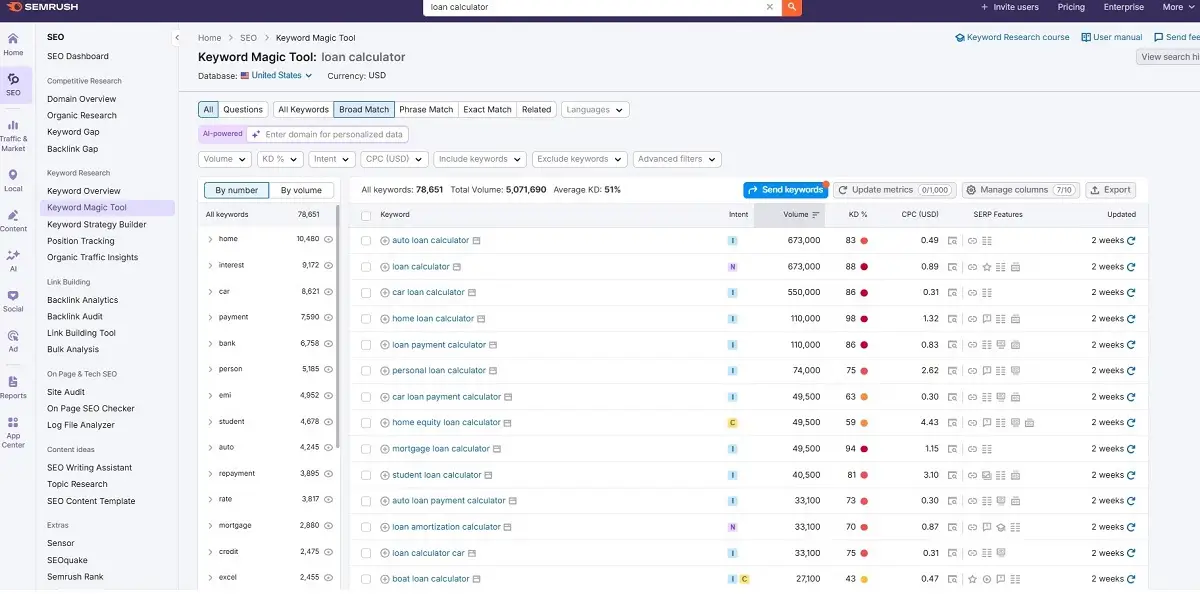
2. Backlink Analysis (What I Use Most)
Link-building is still a major part of my SEO work, especially when trying to compete in saturated spaces. I’ve relied on Ahrefs for years for backlink data. If I had to pick one feature I trust the most in Ahrefs, it’s this.
Why It Matters: Backlinks are still the most powerful signal in SEO. Knowing where links come from, what anchors are used, and how fast your competitors earn them gives you a strategic edge.
Ahrefs
- Live link data, refreshed constantly
- Largest link index outside Google
- Anchor, context, and historical link profile
SEMrush
- Link audit tools, disavow integration
- Toxicity scoring for cleanup projects
Extra Tools I Use
- Google Search Console (Links): Verified links from Google
- Majestic: For trust/citation flow
Winner: Ahrefs (for outreach, monitoring, and link growth)
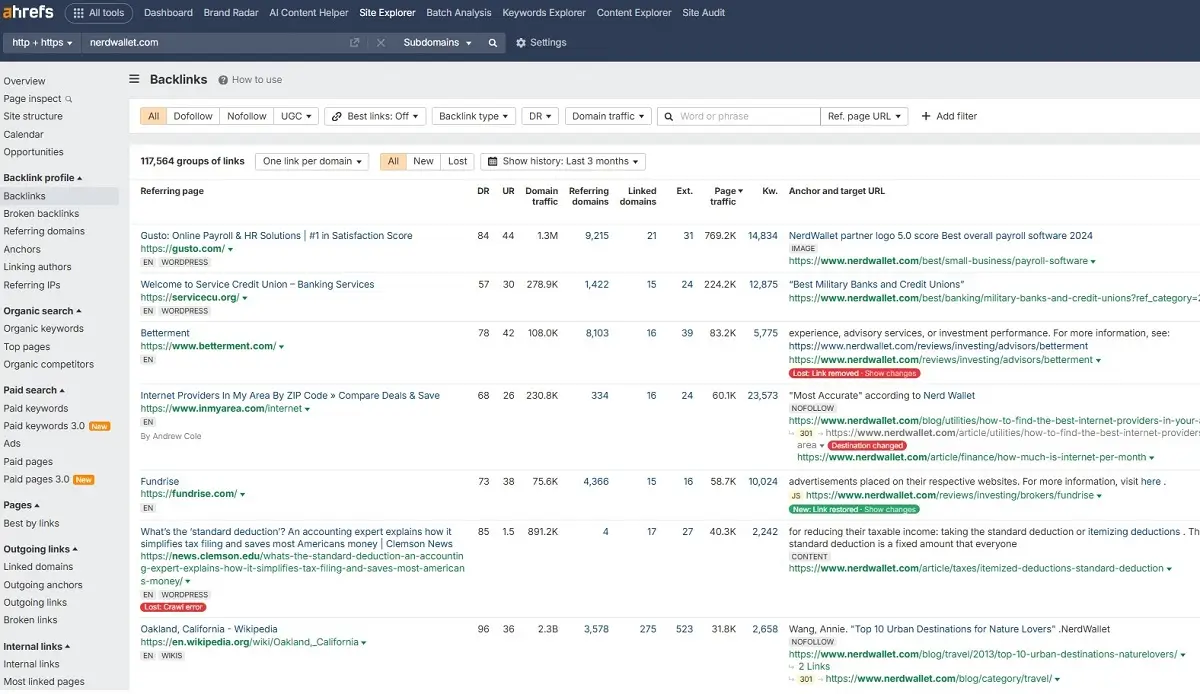
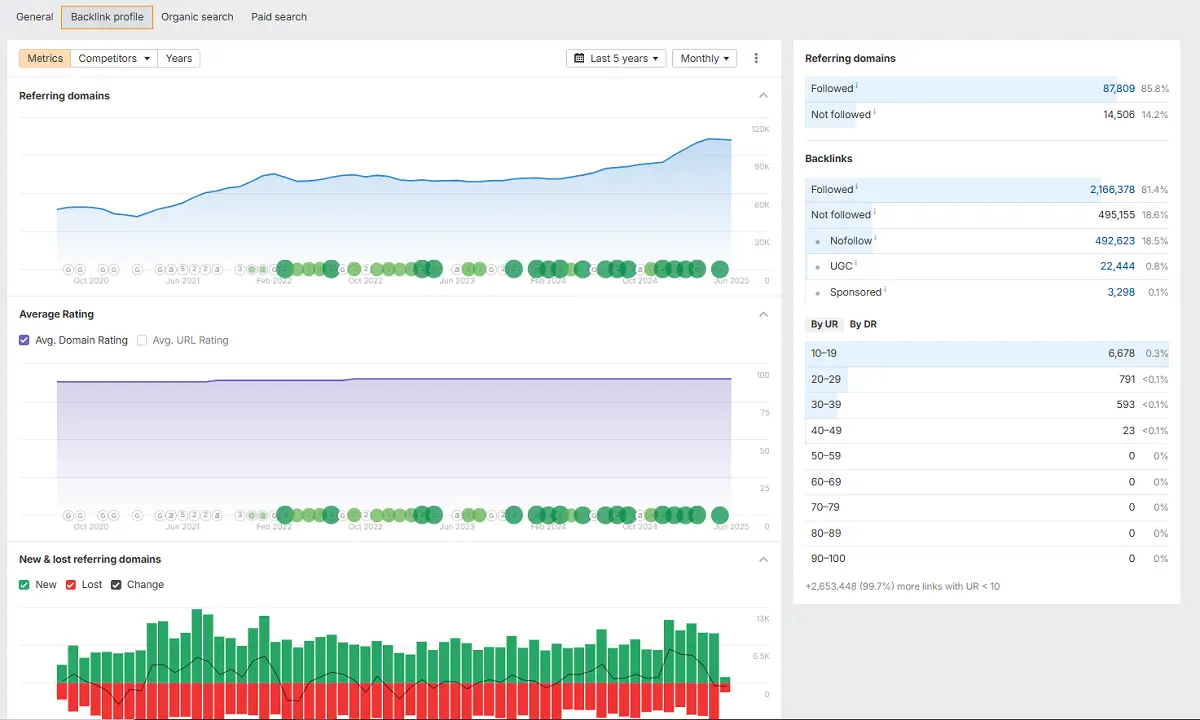
3. Rank Tracking (How I Monitor Progress)
Rank tracking gives me a pulse check — it’s how I know if my work is actually moving the needle. I track positions across dozens of sites and keywords, and here’s how each platform holds up in the real world.
Why It Matters: Knowing your rankings is table stakes. But good rank tracking shows how you’re doing by device, location, and SERP features—which affects your real visibility.
Ahrefs
- Simple and reliable daily tracking
- Global and mobile vs. desktop view
SEMrush
- Local SERP tracking (city/ZIP)
- Tracks snippets, knowledge panels, and more
Extra Tools I Use
- Google Search Console (Performance): Best source for avg. positions
- AccuRanker: Quick snapshots
Winner: SEMrush (for local and feature tracking)
![]()
4. Site Audits (Where I Catch the Hidden Problems)
Technical SEO is a big part of my work, especially for clients with messy CMS setups or outdated structures. I use site audits regularly to spot and fix issues that could be holding back performance, and over time, I’ve learned where each tool shines and falls short.
Why It Matters: Technical SEO often separates good sites from great ones. A proper audit tool will surface issues quickly and let you act before rankings drop.
Ahrefs
- Great for deep technical audits
- Finds crawl errors, JS issues, and orphaned pages
SEMrush
- Easy for beginners to understand
- Prioritized recommendations with explanations
Extra Tools I Use
- Google Search Console (Indexing/Core Web Vitals)
- Screaming Frog SEO Spider
- Lighthouse (Chrome DevTools)
Winner: Ahrefs (for advanced audits)
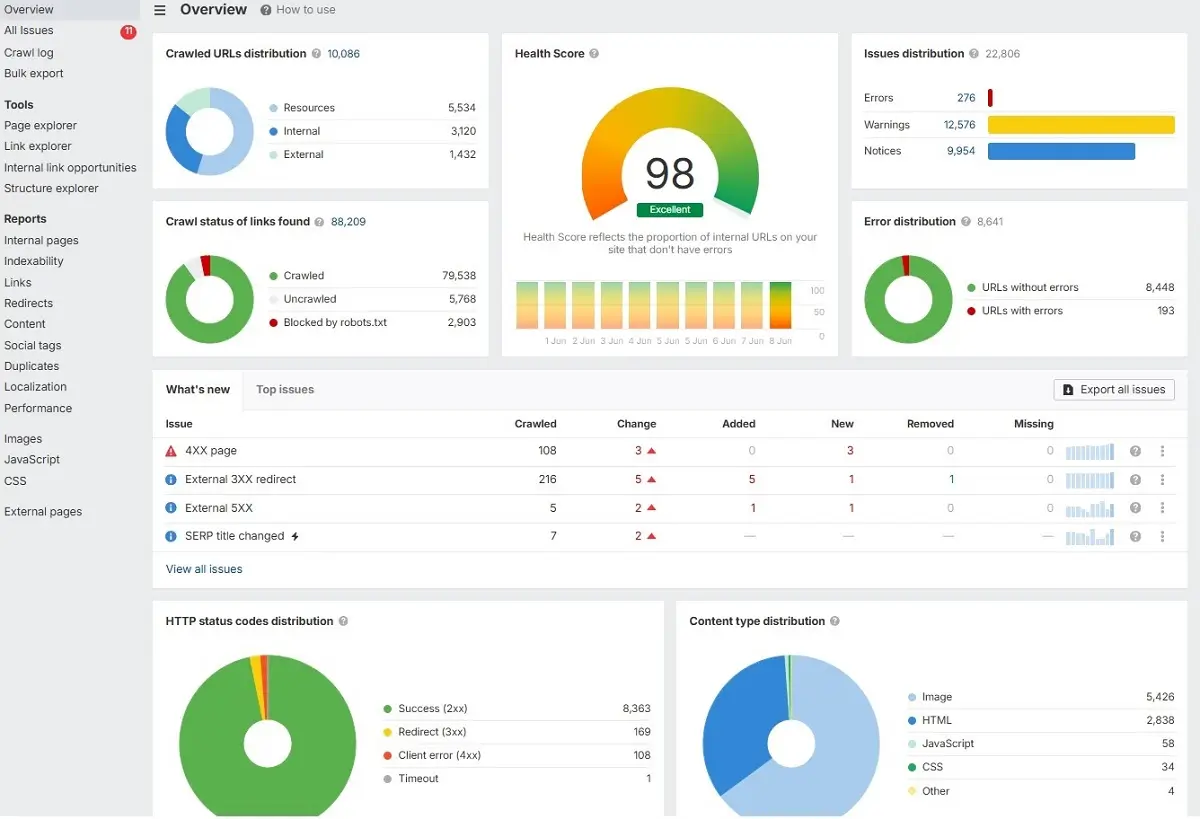
5. Keyword Gap Analysis (My Go-To for Fast Wins)
This is one of my favorite strategies when auditing a new site or planning a content roadmap. Comparing a domain to its top competitors quickly uncovers opportunities I can act on right away — especially when there’s low-hanging fruit no one’s targeting properly.
Why It Matters: One of the easiest ways to find opportunities is to compare your rankings to a competitor’s. This shows exactly where you’re missing out.
Ahrefs
- Fast domain vs. domain keyword comparison
SEMrush
- Filter by paid/organic, funnel intent, keyword group
Extra Tools I Use
- Search Console: Queries with low positions
- Surfer / Clearscope: NLP gap analysis
Winner: SEMrush (more filtering and depth)
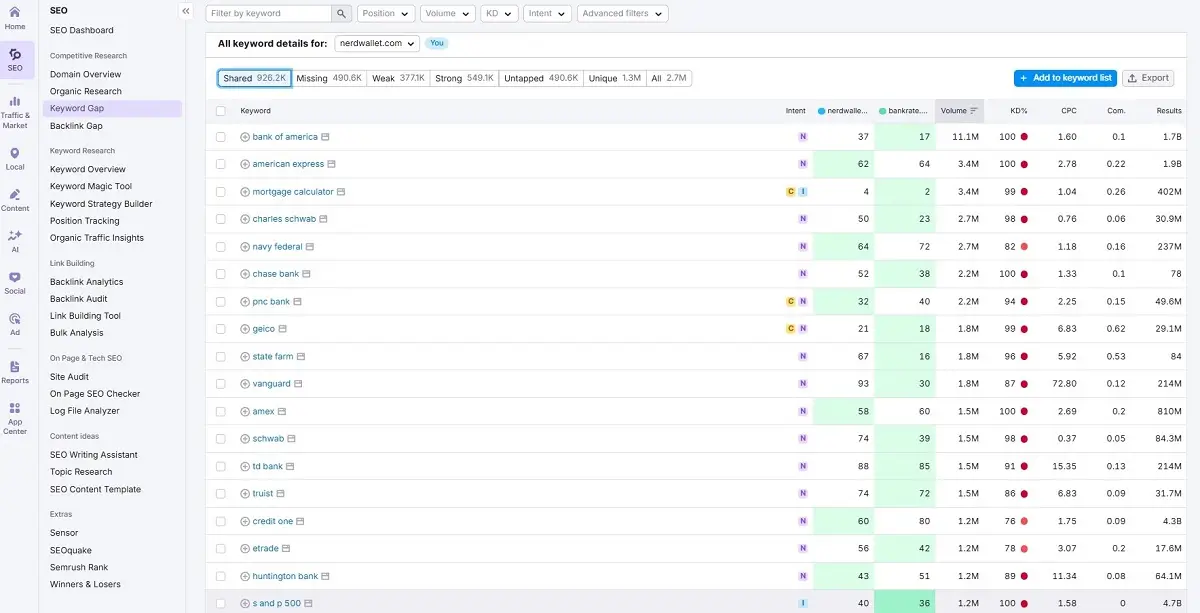
6. Organic Traffic Estimation (What I Trust — and What I Don’t)
Traffic estimation tools are helpful — but they’re not perfect. I always compare tool data to what I see in Google Analytics and Search Console. That said, they give me a good general picture, especially when I’m benchmarking competitors.
Why It Matters: No SEO strategy is complete without understanding how much traffic you or your competitors are pulling in—and where it’s coming from.
Ahrefs
- Conservative, clean traffic estimates
SEMrush
- Traffic broken down by brand, device, and region
Extra Tools I Use
- Google Analytics 4
- Google Search Console (Performance)
Winner: SEMrush (better visibility modeling)
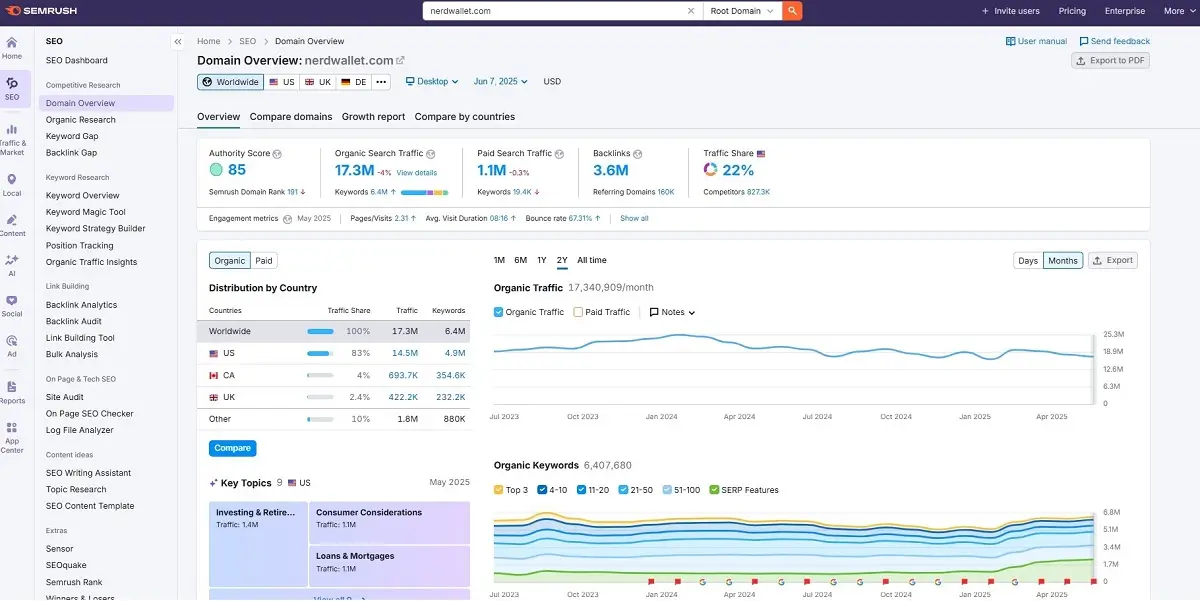
7. Competitor Analysis (How I Build Smarter Strategies)
I’ve worked on competitive SEO in almost every industry — from SaaS to e-commerce. One thing that never changes: the better you understand your competitors, the better you can position your own site. This is how I use both tools to get that edge.
Why It Matters: SEO is never in a vacuum. Seeing where your competitors rank, get traffic, and earn links is one of the fastest ways to build a smarter strategy.
Ahrefs
- Focused on organic traffic and backlinks
SEMrush
- Covers paid ads, shopping, branded terms, social
Extra Tools I Use
- Similarweb: General traffic benchmarking
- BuzzSumo: Viral content and links
- BuiltWith: Tech stack and CMS intel
Winner: SEMrush (if you’re looking beyond SEO)
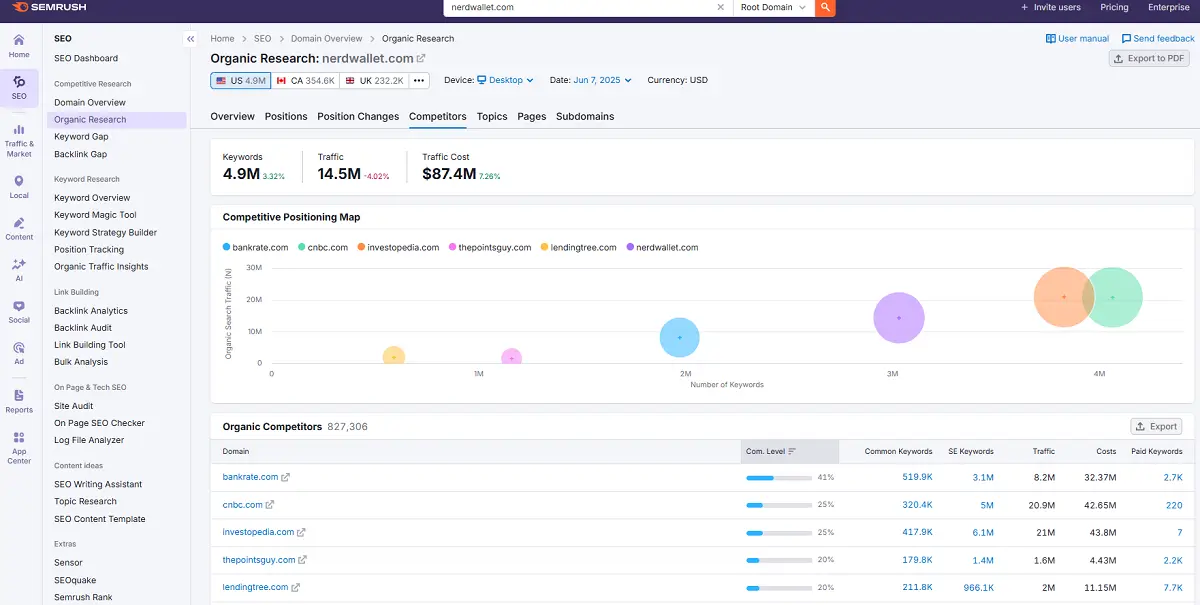
8. Content Marketing Tools (What Helps Me Build Better Pages)
Creating content that ranks isn’t just about keywords — it’s about structure, intent, and giving real value. I’ve used these tools to brainstorm ideas, build briefs, and help teams write smarter content that’s more likely to perform.
Why It Matters: Planning content that ranks is part research, part execution. The right tool helps you discover ideas and shape SEO-friendly copy.
Ahrefs
- Content Explorer: Search for high-performing content by topic or keyword
SEMrush
- Topic Research, AI briefs, SEO Writing Assistant, readability checker
Extra Tools I Use
- Surfer / Frase / Clearscope: On-page optimization
- Google Trends
- AlsoAsked / AnswerThePublic
Winner: SEMrush (end-to-end content workflow)
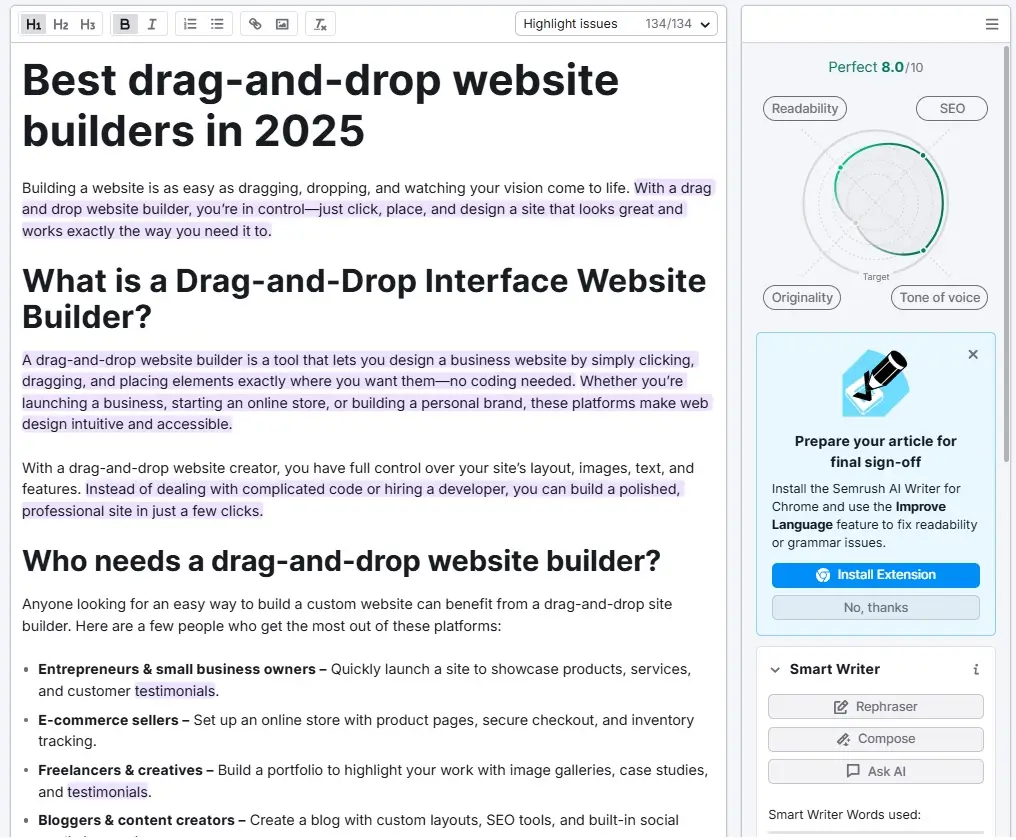
Pricing Comparison
Pricing isn’t just about entry-level cost. You have to look at project limits, keyword caps, user access, historical data, crawl credits, and how fast you hit upgrade triggers.
Here’s a clearer breakdown of what you actually get at each monthly tier:
Ahrefs Pricing
| Plan | Price | Projects | Keywords | Historical Data | Crawl Credits | Users | Best For |
| Lite | $129/mo | 5 | 750 | 6 months | 100,000 | 1 (+$40/user) | Small businesses, basic SEO needs |
| Standard | $249/mo | 20 | 2,000 | 2 years | 500,000 | 1 (+$60/user) | Freelancers, consultants |
| Advanced | $449/mo | 50 | 5,000 | 5 years | 1,500,000 | 1 (+$80/user) | In-house teams, larger operations |
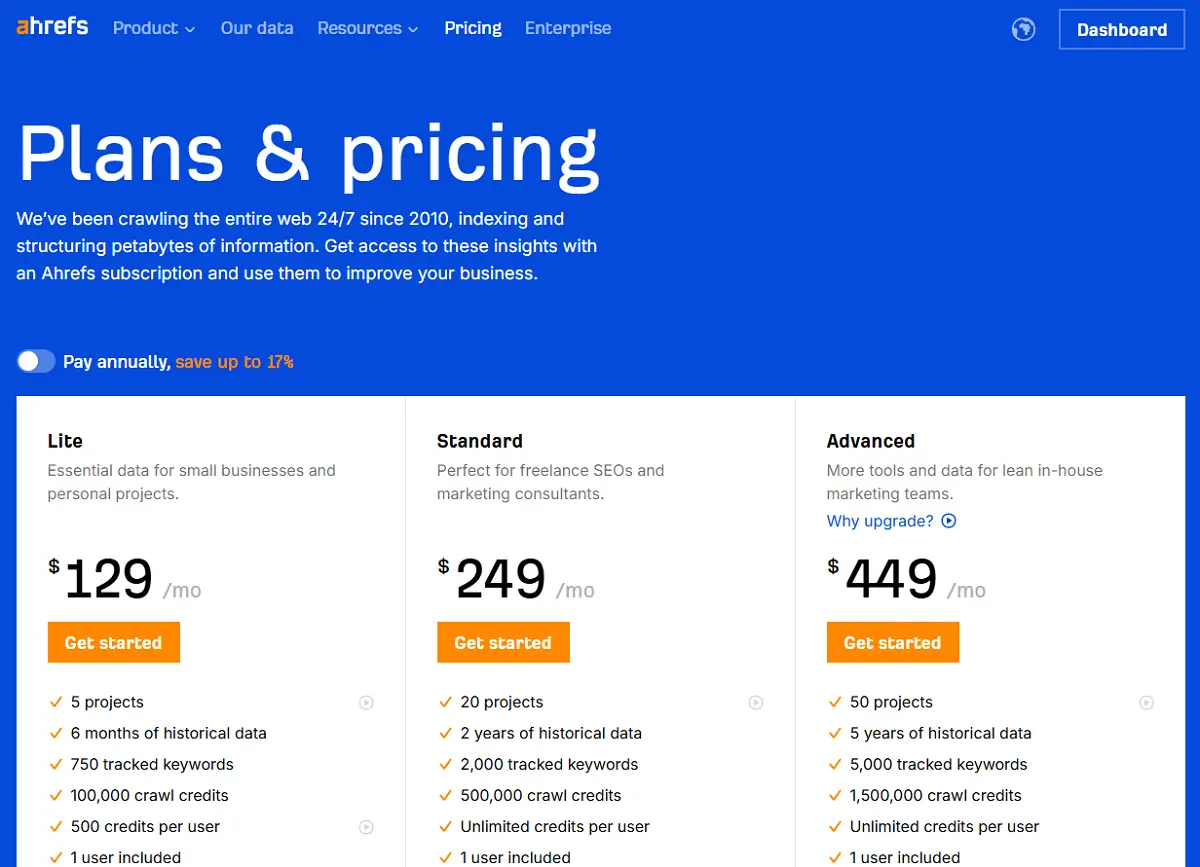
SEMrush Pricing
| Plan | Price | Projects | Keywords | Historical Data | Limits | Users | Best For |
| Pro | $139.95/mo | 5 | 500 | No | Fair usage | 1 | Solo SEOs, bloggers |
| Guru | $249.95/mo | 15 | 1,500+ (approx.) | Yes | Expanded | 1 | Content teams, small agencies |
| Business | $499.95/mo | 40 | 5,000+ (approx.) | Yes + API | Highest tier | Custom | Agencies, enterprise marketing teams |
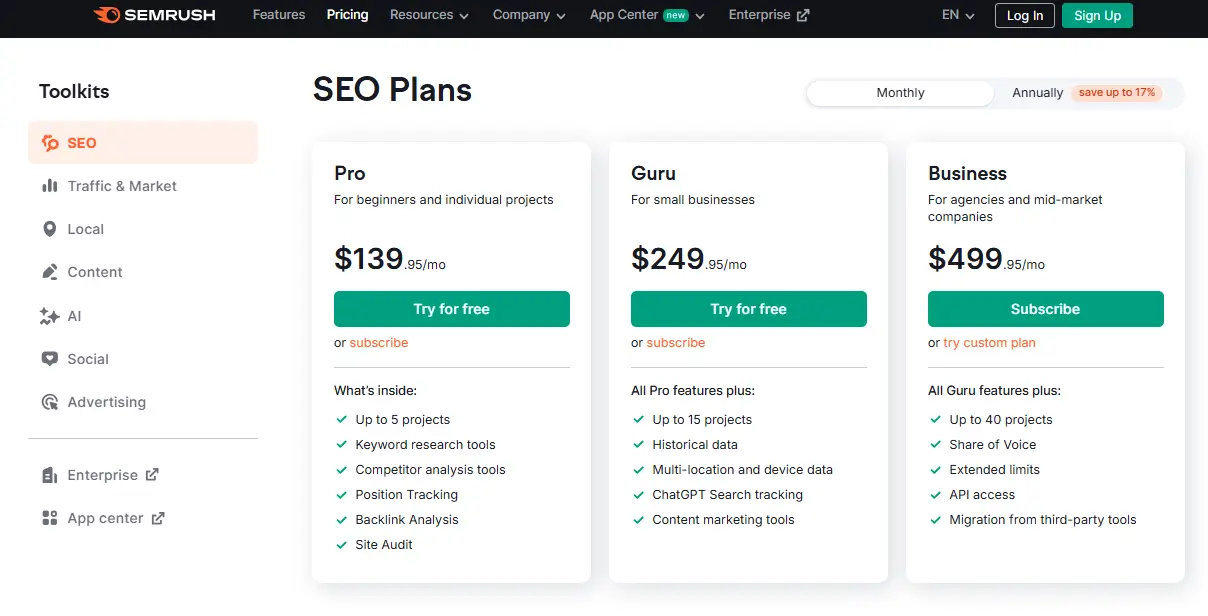
Annual Discounts (billed yearly):
- Ahrefs: Save ~17% when billed annually (e.g., Lite drops to $108/mo)
- SEMrush: Also saves ~17% (e.g., Pro drops to $117.33/mo)
Which Plan Fits Your Team?
- Solo SEOs & Freelancers: Ahrefs Lite or SEMrush Pro — both are usable but limited.
- Content Teams & Agencies: SEMrush Guru or Business — better workflow, more features.
- In-House & Enterprise SEO Teams: Ahrefs Advanced or SEMrush Business — more scale, more credits, more users.
Heads-up:
- Ahrefs offers fewer bells and whistles but is very clear on usage limits.
- SEMrush offers a lot upfront but starts charging for more exports, users, and advanced features faster.
- Small Businesses / Freelancers: Choose Ahrefs Lite or SEMrush Pro. Both are fine for basic SEO, but Ahrefs offers a cleaner, faster experience.
- Agencies / Content Teams: SEMrush Guru or Business — better for reporting, content briefs, and integrated tools.
- Large Enterprises / SEO Departments: Ahrefs Advanced or SEMrush Business — both allow API access, more tracked keywords, and user control.
Watch out: SEMrush charges for add-ons (like additional users, historical data, and extra reports). Ahrefs clarifies limitations but restricts access to core features unless you go to a higher tier.
Related Articles
Not Ready for Paid Tools Yet?
If you’re just getting started with SEO, maybe it’s your first site, a small blog, or a one-person business, don’t overcomplicate it. You don’t have to jump into SEMrush or Ahrefs right away. Honestly? You can learn a ton and make real progress using only free tools.
When I was starting out, I leaned heavily on what Google gives you for free:
- Google Search Console: It’s your direct line to what Google sees. You’ll learn which keywords drive impressions and clicks, which pages are doing well, and where indexing issues hold you back.
- Google Analytics (GA4): Helps you track what happens after users land on your site — who bounces, who stays, and what content keeps people engaged.
- Google Tag Manager: Lets you track clicks, scrolls, form submissions — all without needing a dev. It’s a must if you’re serious about UX and conversion behavior.
Use these tools to get the basics right. Start by determining what pages are performing well, and ask yourself why. What’s different about them? Is it the topic? The structure? The length? Try to reverse-engineer what’s working and double down on it.
You don’t need 10 tools. You need one good habit — consistency. SEO isn’t about chasing quick wins. It’s a long-term game. What matters most is that you keep showing up, publishing valuable content, and learning from your site’s data.
And most importantly, think about your users. Not just traffic numbers. Not just positions. Actual people. The better you solve their problem, the better your SEO will perform.
You can win with the basics. You just have to use them well.
Final Verdict: Choose Based on What You Do Most
| SEO Task | Best Tool | Why |
| Keyword Research | SEMrush | Content segmentation and clustering |
| Backlink Analysis | Ahrefs | Fast, deep, reliable |
| Rank Tracking | SEMrush | Local + SERP features |
| Site Audits | Ahrefs | Technical depth for pros |
| Keyword Gap Analysis | SEMrush | More insight with funnel/intent filtering |
| Organic Traffic Estimations | SEMrush | Multi-layered traffic modeling |
| Competitor SEO Research | Ahrefs | Faster and SEO-specific |
| Multi-channel Competitor Research | SEMrush | Cross-channel coverage |
| Content Ideation | Ahrefs | Top-performing page discovery |
| Content Optimization | SEMrush | Writing assistant + optimization tools |
My Bottom Line
If you’re focused mainly on technical stuff — like SEO health, backlinks, or fixing site issues — then Ahrefs is probably the better choice. It’s fast, easy to navigate, and gives you solid data about what’s going on behind the scenes. It’s my go-to when I want to dive deep into audits or track link-building campaigns.
If you spend more time working on content—building pages, researching keywords, and checking what your competitors are doing, then SEMrush might be a better choice. It has more tools for content planning, reporting, and even checking how your ads or social campaigns perform.
Do you need both? Not really. However, using both tools can give you a more complete picture if you work across multiple areas, like SEO, content, reporting, and strategy. That’s what I do: Ahrefs helps me handle technical SEO and backlinks, while SEMrush supports me with content strategy and deeper research.
This is what works for me. Feel free to reach out if you’re unsure which one is right for you. I’ve helped many teams determine what matters in their day-to-day work.
You can win with the basics. You just have to use them well.



